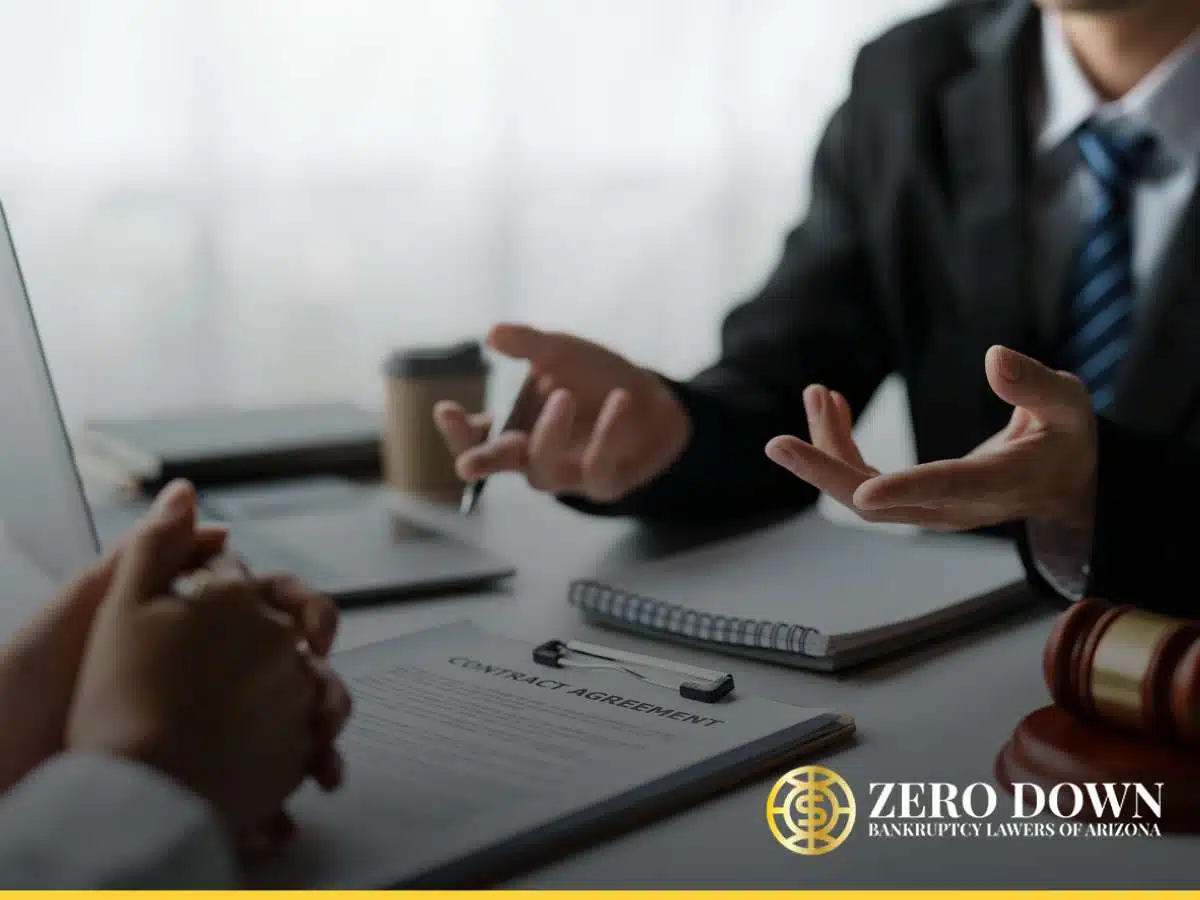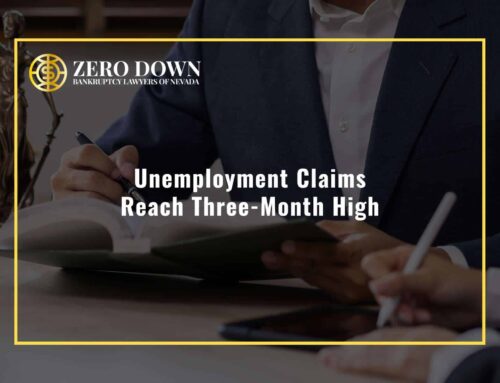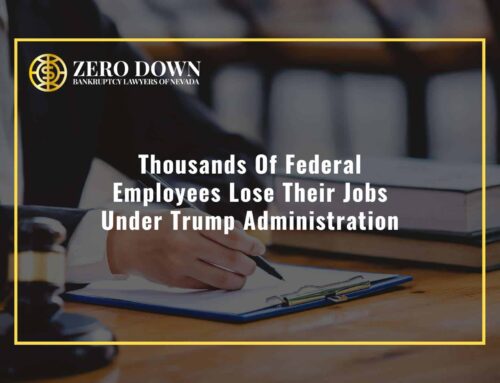With the economy as turbulent as it is, job security is more valuable now than ever. Unless you are retired with significant savings and social security income, a sudden job loss could turn your whole life upside down. Unemployment is one of the top reasons that people decide to file for bankruptcy. But there are several considerations to keep in mind when filing bankruptcy due to a job loss. You may want to put off filing for as long as possible after losing your job, or you may want to do it quickly before you start a new job. Discuss all of your options with an experienced bankruptcy lawyer for free by calling 602-609-7000.
Waiting To Qualify For Chapter 7 Bankruptcy
Chapter 7 bankruptcy is many debtors’ preferred type of bankruptcy for several reasons. It is cheaper, faster, and simpler to file than Chapter 13 bankruptcy. But numerous factors could disqualify a debtor from filing Chapter 7 bankruptcy in Arizona. If a debtor has previously filed for bankruptcy, they must wait a certain number of years before filing another bankruptcy case. If they have assets with more equity than is protected by Arizona’s bankruptcy exemptions, the trustee might take them to sell and pay off debts. But the most common disqualifier for Chapter 7 bankruptcy is income. There are two ways to qualify for Chapter 7 bankruptcy in Arizona. The simpler way to qualify is by calculating your average monthly income and comparing it to the state median. You can find the median income chart for household size for 2022 here. Keep in mind that only a legal spouse and dependents can be included in your household size- adult children or a live-in partner won’t count towards your household size. If your income exceeds the state median, you can try to qualify for Chapter 7 bankruptcy through the means test. You can find a means test form here, but it’s advisable to have a bankruptcy lawyer complete your means test to ensure accuracy.
If you recently lost your job but were already considering bankruptcy, one silver lining may be that it may improve your chances of qualifying for Chapter 7 bankruptcy. For qualification purposes, your income will be averaged over the past 6 months. That means the longer you wait after becoming unemployed, the lower your average monthly income will be. Depending on your circumstances, waiting a few weeks or months could be the difference between qualifying for Chapter 7 or needing to file Chapter 13 bankruptcy instead. However, you may also have a spouse whose income will disqualify you from Chapter 7 bankruptcy regardless. A skilled bankruptcy attorney can help you determine how long you need to wait to qualify for Chapter 7 and other considerations to keep in mind for your bankruptcy.
Debts That Can Be Discharged In Chapter 7 Bankruptcy
If you’re considering bankruptcy, it’s best to avoid taking out secured debts or attaching any of your assets as collateral to any of your unsecured debts. For example, if you take out a title loan, there will be a lien attached to your vehicle until the debt is repaid, regardless of if you file bankruptcy. Debts that can be discharged in Chapter 7 bankruptcy include:
- Credit card debts
- Unpaid medical bills
- Unpaid utility bills
- Repossession deficiencies
- Tax debts that meet certain requirements
- Certain civil judgments
- Back rent
- Personal loans
- Certain government benefit overpayments
Credit Considerations For New Employment
Depending on your career industry, bad credit, and bankruptcy could impede your chances of getting a new job in the future. For example, if you were to apply to be a financial advisor, you may have to authorize a credit check by your potential employer. It would be reasonable for an employer to have hesitation hiring you to tell other people what to do with their money if you have a poor credit history and one or more bankruptcy filings.
If you file Chapter 13 bankruptcy in the wake of unemployment, you can anticipate needing to modify your plan once you find a new job. Getting a job will most likely mean an increase in your disposable monthly income, which your creditors are entitled to a share of while you are entitled to extensive bankruptcy protections from the court. If possible, you may want to wait until you have been at your job for a while if you plan on filing Chapter 13 bankruptcy due to a job loss or unemployment.
Credit Considerations For New Employment
Understanding what lies ahead for your bankruptcy could be crucial to you finding and keeping a new job. Your position could require travel or other factors that could make it impossible to complete your bankruptcy. Some of the requirements and deadlines you can expect if you file bankruptcy in Arizona are:
- 341 Meeting of Creditors: Whether you file Chapter 7 or Chapter 13, you will need to attend a 341 Meeting of Creditors. After your case is filed, a trustee will be assigned to your case and send you a letter 1-2 weeks after receipt of your petition. This letter will contain the information for your 341 Meeting of Creditors, which is generally 30-45 days after your petition filing. While the court may occasionally allow for telephonic or remote appearance, all debtors on the petition must attend this hearing. Creditors have the option of appearing at this hearing, but if the debtor doesn’t appear, the case will be delayed, or potentially dismissed.
- Credit counseling courses: All debtors are required to complete 2 online credit counseling courses for their bankruptcy cases. The courses take 1-2 hours each and require an online chat with a credit counselor to receive a completion certificate. This first-course certificate must be filed with the initial bankruptcy petition, and the second certificate must be filed within 60 days of the 341 Meeting of Creditors. You can take the first course up to 180 days before filing your petition. We recommend taking the second course as soon as possible after the 341 Meeting of Creditors to avoid issues like forgetting to complete the course or technical issues near the deadline.
- Correspondence with your trustee: The trustee will review your petition and may have questions about it. The trustee might also require that you submit documentation to support the information you provide.
Discuss Your Debt Relief Options With a Dedicated Member Of Our Arizona Bankruptcy Team
Job loss is among divorce, natural disasters, and medical emergencies as the leading causes of bankruptcy in the United States. Our team understands the intricacies of filing bankruptcy due to job loss, whether or not you have found new employment. We can help you determine which chapter(s) of bankruptcy you qualify for, and how long you may need to wait to qualify for the other. We also offer flexible payment options, including post-filing payment plans for qualified filers. You can learn more about bankruptcy and if it’s the right fit for your situation entirely risk-free. Arizona Zero Down Bankruptcy offers free consultations by phone. You will also be provided with a competitive quote for representation. Contact us to schedule your free consultation today, call 602-609-7000.
Arizona Offices
Phoenix Location:
343 W Roosevelt Street, Suite #100
Phoenix, AZ 85003
Email: [email protected]
Phone: 602-609-7000
Mesa Location:
1731 West Baseline Rd., Suite 101
Mesa, AZ 85202
Email: [email protected]
Glendale Location:
20325 N 51st Avenue, Suite #134
Glendale, AZ 85308
Email: [email protected]
Tucson Location:
2 East Congress, Suite #900
Tucson, AZ 85701
Email: [email protected]











